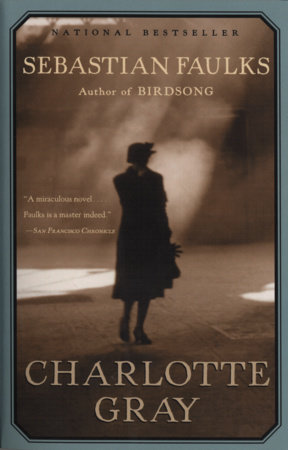Charlotte Gray Reader’s Guide
By Sebastian Faulks


1. The author described his motivation for writing Charlotte Gray in this way: "I wanted to look at the insidious way that war affects individual lives." War has an obvious effect on the love affair between Charlotte and Peter Gregory–it interrupts it. But what deeper effect does the war have on them as individuals, and how does it change the course of their relationship? How has war effected relationships around you?
2. Many reviewers have praised Faulks’ strengths as an historical novelist, particularly his skill with details and his ability to bring his period settings to life. What scenes and settings in Charlotte Gray are especially touching or memorable to you and why?
3. When Charlotte is living in France working for the Resistance she becomes increasingly attracted to the elderly Jewish artist, Levade, and, for different reasons, to his son, Julian. What do these men represent to her, and what is she searching for in her relationship with them? Are they simply replacements for her father and lover or is it more complicated than that?
4. Although Charlotte Gray is set during World War II, the memory and legacy of the First World War infuses the novel. In what ways does Faulks accomplish this, and why do you think he has done so? Does it change the way you think of the First and Second World War? (There is an example on page 107 which describes a town and the effects the two wars have had on it.)
5. Faulks uses the same verb, "disappear," along with other parallels in describing the fates of the young Duguay brothers (page 370) and of Charlotte and Gregory (page 399). What point do you think he is trying to make by doing this?
Just for joining you’ll get personalized recommendations on your dashboard daily and features only for members.
Find Out More Join Now Sign In